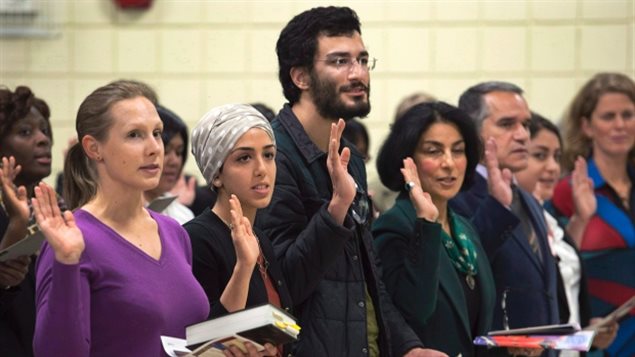An estimated 844,000 Canadians are not getting the jobs they should because their credentials are not being recognized, says the Conference Board of Canada. Many immigrants come to Canada only to find their university degrees or professional training is not recognized here. They may be doctors or engineers at home, and end up cleaning buildings or driving taxis in Canada.
There are also professionals trained in Canada who get certified in one province, and then move another which has its own, different, professional certification. For example, a psychologist trained and with experience practicing in the province of Ontario cannot practice in Quebec. This is because, according to the Canadian constitution, provinces have jurisdiction over education and professional certification and often they jealously guard it.
There are also people who cannot get good jobs because their professional experience in not given credit, says a report prepared for the board.
People lose, economy loses
These Canadians could be earning up to $17 billion more per year if their education and skills were recognized, it found. It estimates their annual incomes could be higher by an average of $15,000 to $20,000 per person.
Canada will need their skills even more, as the population ages and large numbers of people retire, says Michael Bloom, a vice-president at the Conference Board of Canada.
ListenHis report makes recommendations to improve the learning recognition system. Among them:
- Modify immigration selection and settlement to include learning recognition during the selection process.
- Align immigration and workforce and development policies.
- Export Canadian post-secondary education curriculum and programs into other countries.
- Make the business case for learning recognition and engage employers in the process.
- Move more occupations to national standards.
- Improve openness and transparency of existing recognition systems.”







For reasons beyond our control, and for an undetermined period of time, our comment section is now closed. However, our social networks remain open to your contributions.